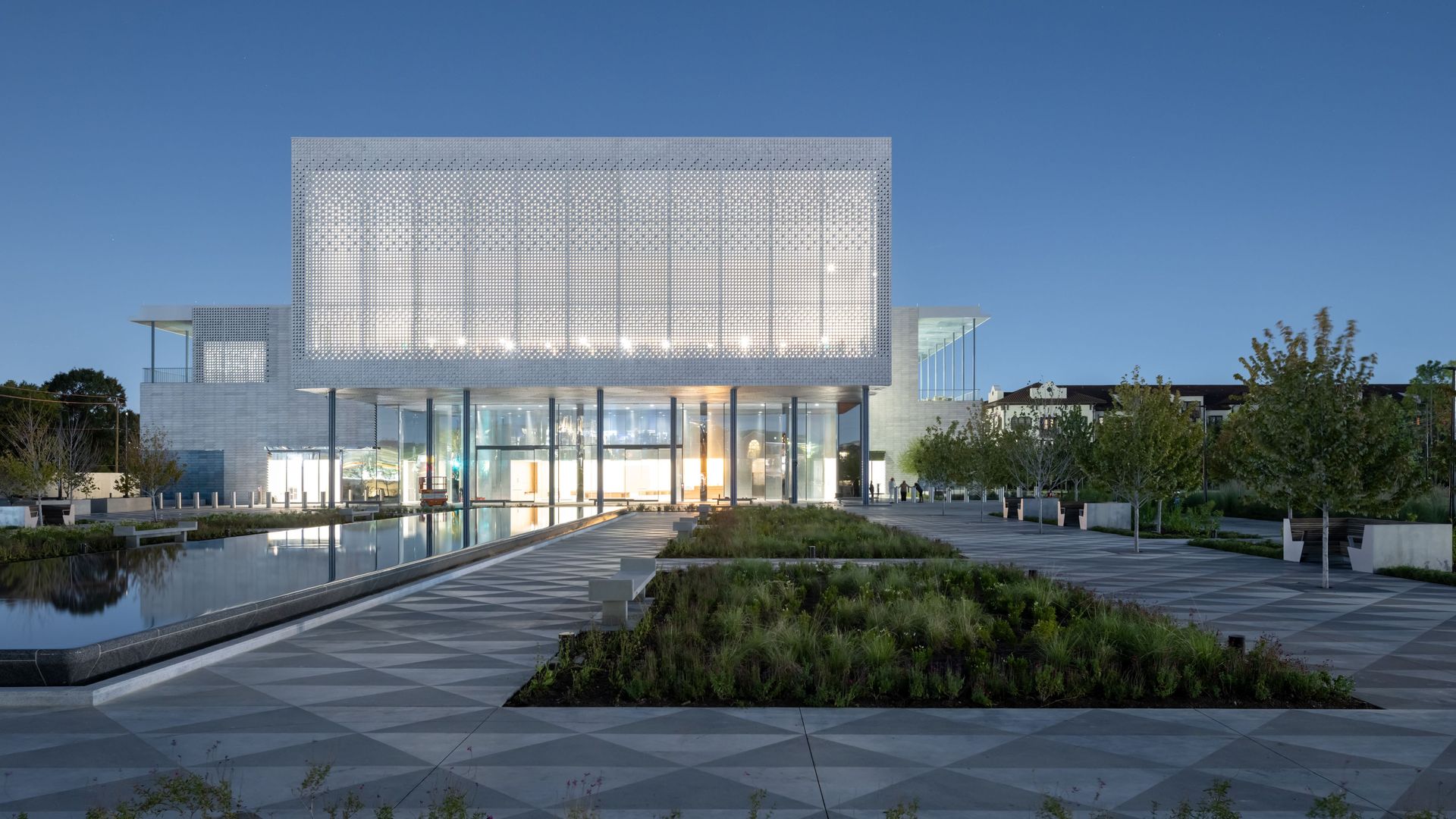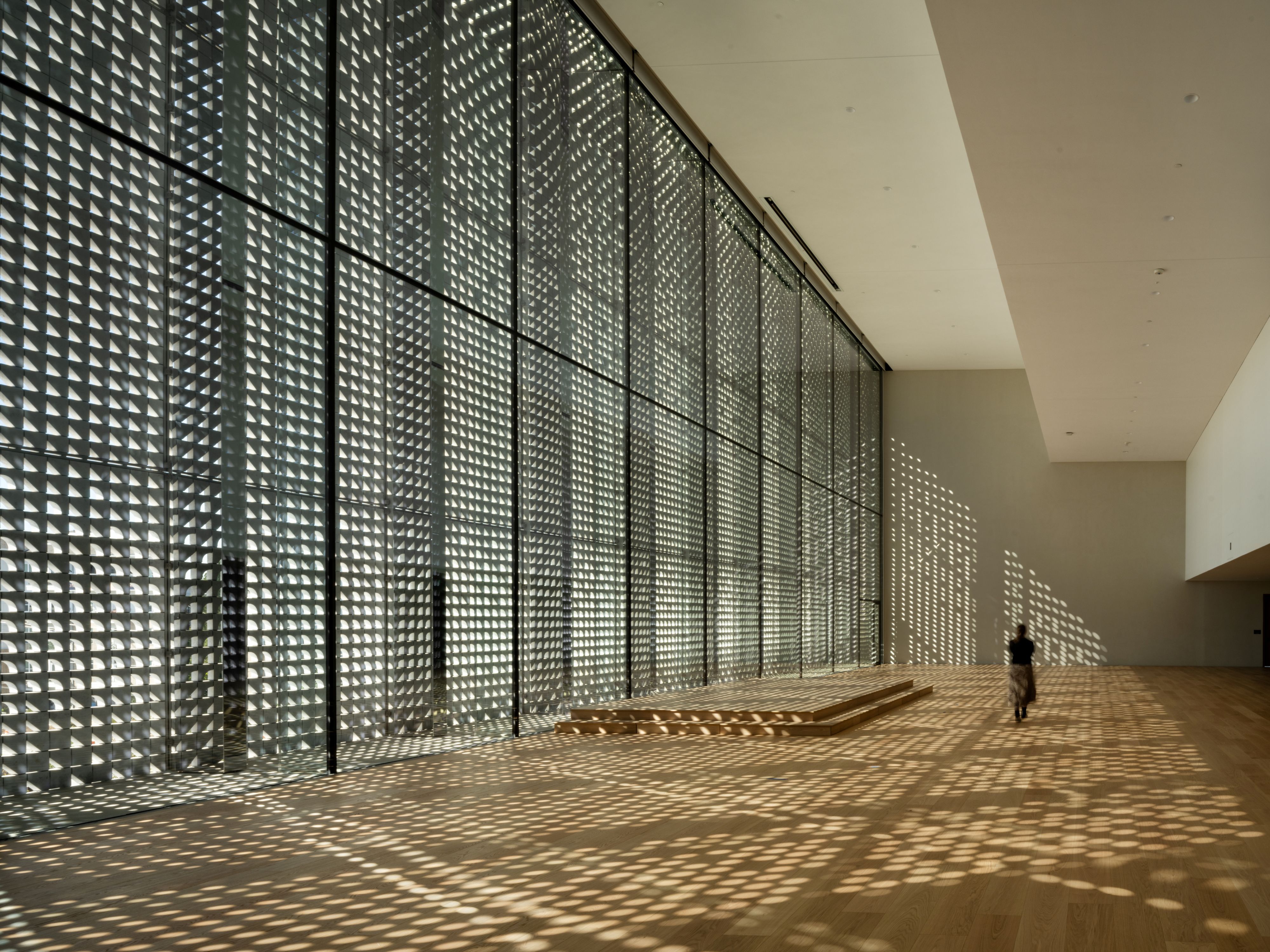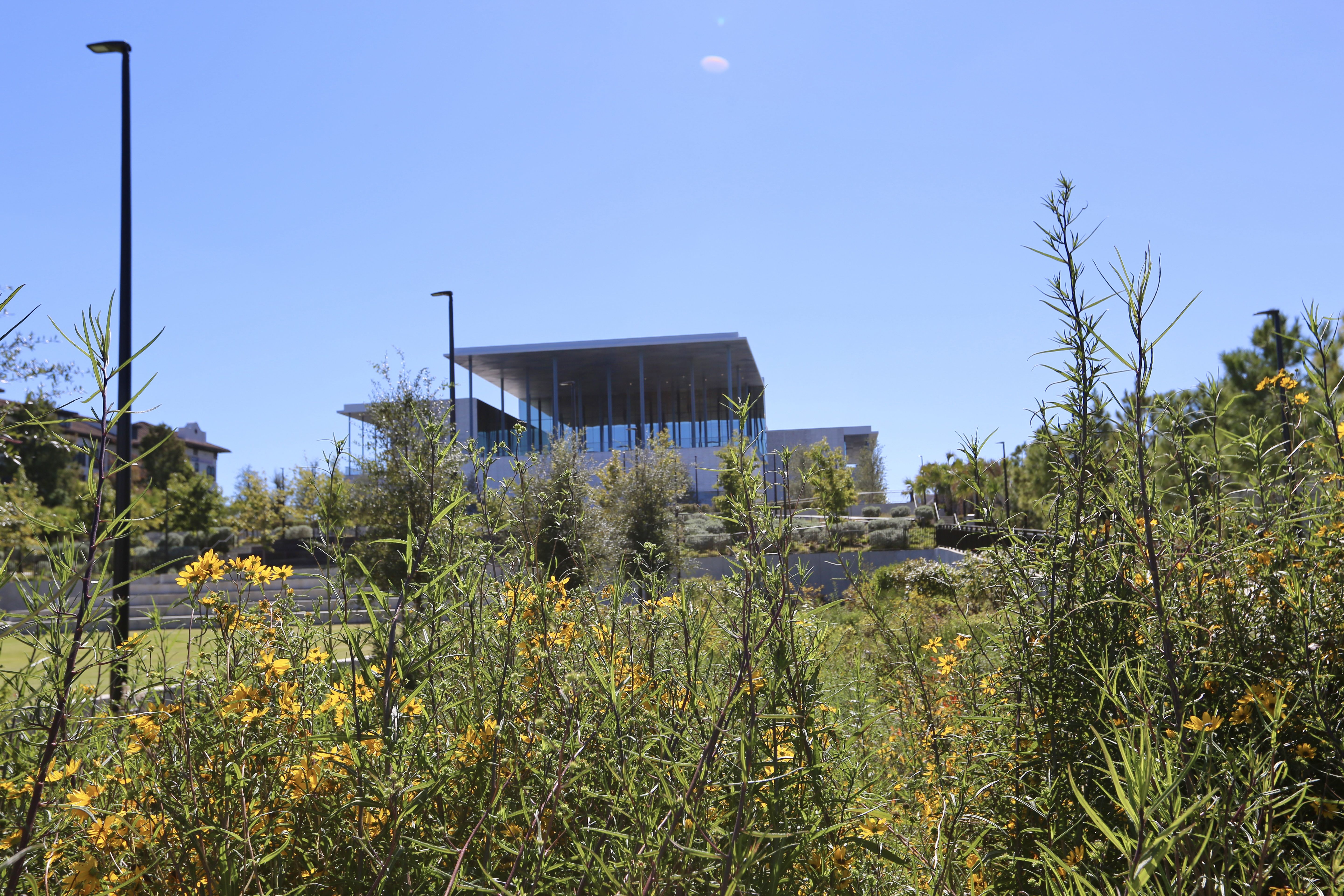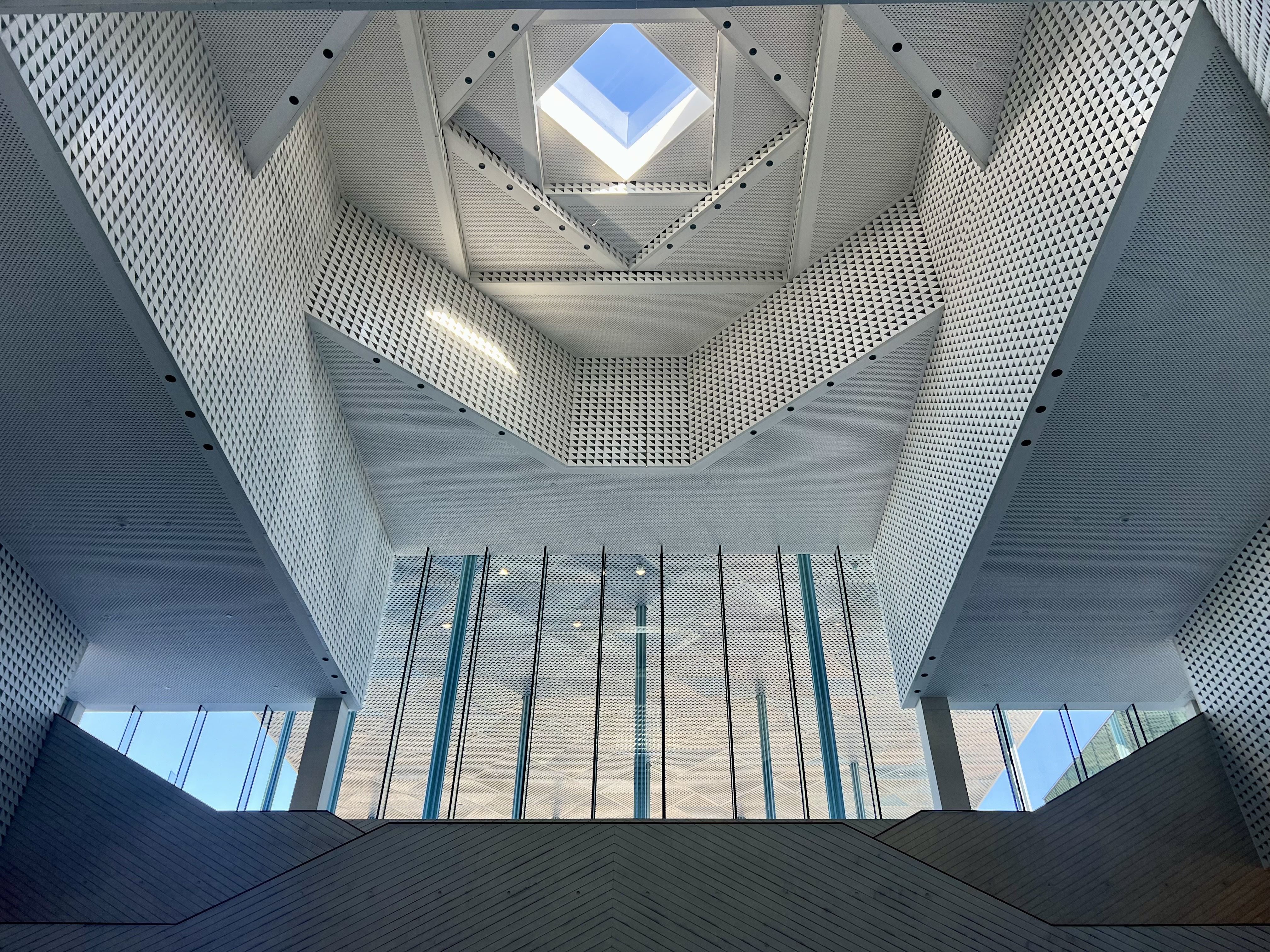- Joined
- Mar 11, 2013
- Messages
- 16,041
- Points
- 113

The stone tapestry, with its triangular patterns, illuminates at night and has shadows in the day. Photo: Iwan Baan, courtesy of the Ismaili Center.
The Ismaili Center, Houston, an architecturally grand cultural and religious space and one of only seven worldwide, has completed construction and is opening to the public next month.
Why it matters: The 150,000-square-foot center — the first in the U.S. — blends Islamic and contemporary design. It spans 11 acres and sits along Buffalo Bayou.
- While its prayer hall will serve Ismaili Muslims daily, the center and its gardens are designed as a community gathering space open to all Houstonians.
- Houston has the largest population of Ismailis in the U.S. Tens of thousands of Ismailis live in the greater Houston area and attend the region's several Jamatkhanas, or prayer halls.
- The imam will visit the Ismaili community in events through Sunday in Houston — his first visit to the U.S. in a religious capacity — marking a deeply spiritual moment for the community.
- The center fulfills a long-held vision of the late His Highness Prince Karim Aga Khan IV. Houston was selected because it's a global city with a large Ismaili population.

What they're saying: "This building may be called an Ismaili Center, but it is not here for Ismailis only. It is for all Houstonians to use; a place open to all who seek knowledge, reflection, and dialogue," said Aga Khan V at the ceremony.
- "Empty buildings, however striking, don't serve their communities. It is my deep hope that with your engagement, the Center will lift spirits and broaden horizons. The Center will bring people together, strengthen bonds, and help us all collectively to bring happiness and harmony to societies here and elsewhere."

Zoom in: The building's prayer hall accommodates about 1,500 people and spans 12,240 square feet — less than 10% of the center's space. It's designed as a meditative space facing the qibla, with soundproofing and motifs representing Allah, Ali and the Prophet Muhammad.
- The building also has a library, educational rooms for religious study, bookable conference halls, balconies, cafés, a black box theater, and space for permanent and temporary art installations.
- The courtyard features multiple gardens — a hallmark of Islamic architecture — with reflection fountains and U-shaped seating areas designed to foster conversation. The garden is filled with native Texas plants categorized by the state's climate regions.
- "This building is about heritage. It's about saying the Ismaili community has a past, but it's not stuck in the past. It's also a living community," architect Farshid Moussavi tells Axios.

Zoom out: This is the world's largest Ismaili Center. The six others — in London, Vancouver, Lisbon, Dubai, Dushanbe and Toronto — are known globally for their architectural innovation and cultural significance.
What's next: Community welcome events are scheduled for Dec. 12 and 13, after which the center will be officially open to the public.
- More landscape features — including a playground, sports areas and expanded gardens — are to come.
